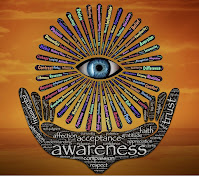Various happenings in my life are telling me I need to devote more time to coaching:
- First of all, as mentioned in a post last month, I'm going to be mentoring the European cohort of The Coach. This will last for an entire academic year and I'm excited to be a part of this to bring coaching to more schools.
- Secondly, our latest PYP Bookclub book is Onward by Elena Aguilar which is focused on nurturing resilience in educators. I truly believe there is a lot in this book that relates to coaching.
- Finally, today I was contacted by a colleague from India to let me know about Positive Intelligence, a course for coaches. I'm interested to explore how this can be a great addition to the work I'm already doing.
Going back to the book Onward, I've been reading through Chapter 1 which is entitled Know Yourself. Over the last few days I've been mulling over this chapter, in particular how teachers who really know themselves see that their behaviours constantly reflect their values and beliefs. These teachers know what they are good at and what they love doing, and because of this they can navigate the challenges they face when times get tough. Elena argues that it's the hundreds of little choices we make every day that help us to cultivate resilience. Our self-knowledge helps us build stronger relationships with others, and by playing to our strengths, our energies are more wisely channelled towards our purpose.
When I lead PYP workshops I often start by asking teachers about why they became - and why they stayed - teachers. This question taps into those deeply held values about education. Our core values can often be traced back to our families and include things such as compassion, responsibility, hard work, justice and so on. It is our values that both drive us forward and also anchor us. It's only when we act in alignment with our values that we experience integrity.
It's not only people that can have values. I often talk about how the IB programmes are driven by the values of the IB mission statement. Schools also need values that are articulated and lived. These values will connect all those who work and learn in the school - they will be found in the school's mission statement and should encourage people to take action.
Another aspect of self-knowledge is our personality, which is different from our values. Values can change and develop throughout our lives, whereas our personalities rarely do. Understanding our personality is as important as understanding our values because it can illuminate areas where we need to learn and grow. Being aware of our personality is also important in understanding how we relate to others - conflict can arise with people who have very different personalities from our own.
Another section of Chapter 1 refers to our sociopolitical identity (the social groups to which we belong). This includes race, ethnicity, gender, class background and so on. Our identity has been part of us since birth, and it also plays a huge role in how we relate to others. Being aware of our identity can also help us see our beliefs and values as cultural constructs and it helps us recognise that these beliefs and values may not be universally shared, and may in fact be very biased.
Elena challenges us to find our strengths and the things we really love to do. Being aware of our skills helps us to make better decisions and it also helps us to recognise whether or not our skills are being utilised in our current roles. She tells us we should not ignore our areas for growth, but she recommends we start by considering our strengths because working with our strengths will get us through challenging times. By knowing our strengths, we will then be able to address the things we need to learn. It will also enable us to look at what we are doing in our current role and perhaps to consider taking on new roles, based on what we are good at and love doing. We all know of people who have been nudged up the career ladder, leaving behind the classroom role and students they love, and then find themselves deeply unhappy and dissatisfied in their new roles - this is because the new roles are not ones that fit their strengths and aptitudes.
Finally we need to consider culture (I've already written extensively about The Culture Map by Erin Meyer which was a fantastic book for opening my eyes to why people do things differently). Culture is the way we do things - for example how we collaborate with each other, how we give and receive feedback, how we make decisions and so on.
So, we need to consider all these aspects of ourselves to truly gain self-knowledge. Elena writes, "The better you know yourself, the clearer your purpose becomes .... when hard moments come your eyes will be on the prize - on fulfilling your sense of purpose. When you need to make decisions and pick your battles you'll be anchored in and emboldened by purpose." Resilient people, she writes, are firm and clear on their purpose.
Photo Credit: John Hain on Pixabay

No comments:
Post a Comment